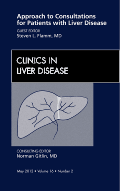
Clinics in Liver Disease
Scope & Guideline
Navigating the landscape of liver health and disease.
Introduction
Aims and Scopes
- Portal Hypertension:
The journal covers extensive research on portal hypertension, including its pathophysiology, complications, management strategies, and surgical interventions. - Hepatic Encephalopathy:
A significant focus on hepatic encephalopathy is evident, exploring its clinical manifestations, management strategies, and the socio-economic burden it imposes on healthcare systems. - Autoimmune Liver Diseases:
The journal addresses various autoimmune liver diseases such as autoimmune hepatitis and primary biliary cholangitis, focusing on their pathophysiology, diagnosis, and treatment options. - Chronic Viral Hepatitis:
Research on chronic viral hepatitis, particularly hepatitis B and C, is a core area, highlighting new therapies, epidemiology, and management challenges. - Nonalcoholic Fatty Liver Disease (NAFLD):
The journal discusses NAFLD extensively, including its epidemiology, pathogenesis, and the impact of associated conditions such as metabolic syndrome. - Liver Transplantation:
The scope includes discussions on liver transplantation, donor selection, complications, and post-transplant management, reflecting its critical role in hepatology. - Acute-on-Chronic Liver Failure:
Research on acute-on-chronic liver failure is prominent, examining its clinical spectrum, management challenges, and therapeutic innovations. - Endoscopic and Interventional Procedures:
The journal includes studies on endoscopic and interventional radiology techniques for managing liver diseases, emphasizing minimally invasive approaches.
Trending and Emerging
- Noninvasive Assessment Techniques:
There is a growing emphasis on noninvasive assessment methods for liver diseases, particularly in evaluating fibrosis and portal hypertension, as they offer safer alternatives to traditional methods. - Integrated Management of Hepatic Encephalopathy:
Increased focus on integrated management strategies for hepatic encephalopathy highlights the need for comprehensive care that addresses not only clinical symptoms but also social and economic factors. - Innovative Therapies for Autoimmune Liver Diseases:
Research into novel therapies for autoimmune liver diseases is on the rise, reflecting advancements in treatment options and a better understanding of disease mechanisms. - Genetic and Metabolic Factors in Liver Disease:
Emerging research is focusing on the genetic and metabolic underpinnings of liver diseases, particularly in relation to NAFLD and its systemic implications. - Portal Hypertension Complications:
A significant increase in studies addressing the various complications associated with portal hypertension indicates an expanding understanding and management of this complex condition.
Declining or Waning
- Traditional Hepatitis Management:
There has been a noticeable decline in papers focusing on traditional management strategies for hepatitis, as newer, more effective treatments and approaches are being developed and adopted. - Alcoholic Liver Disease Research:
Although still relevant, the volume of research specifically addressing alcoholic liver disease has decreased, possibly due to a shift towards more comprehensive metabolic liver disease studies. - Chronic Kidney Disease in Liver Disease:
Research specifically linking chronic kidney disease with liver disease has waned, likely as more attention is directed toward integrated approaches that encompass broader aspects of liver health. - Liver Biopsy Techniques:
The frequency of papers discussing liver biopsy techniques has decreased, likely due to the increasing reliance on noninvasive diagnostic methods. - Emerging Biomarkers in Liver Disease:
Research on emerging biomarkers for liver disease diagnosis and prognosis has seen a decline, possibly overshadowed by advancements in imaging and noninvasive testing.
Similar Journals

Korean Journal of Gastroenterology
Elevating Understanding of Gastrointestinal DisordersKorean Journal of Gastroenterology (ISSN: 1598-9992, E-ISSN: 2233-6869), published by the Korean Society of Gastroenterology, has been a premier outlet for research and advancements in the field of gastroenterology since its inception in 1968. This open-access journal, based in South Korea, fosters a global dialogue on gastrointestinal health, embracing contributions from a diverse array of disciplines within medicine. It is currently ranked in the Q4 quartile for miscellaneous medicine and holds a Scopus rank of #323 out of 636 in general medicine, reflecting its commitment to publishing impactful research despite its relatively recent establishment in high-impact metrics. With a continuous publication timeline extending through to 2024, the journal aims to enhance understanding of gastrointestinal disorders and promote innovative treatments, making it an essential resource for researchers, clinicians, and students alike who seek to stay abreast of the latest developments and clinical applications in gastroenterology.
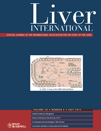
LIVER INTERNATIONAL
Elevating the standards of liver research globally.LIVER INTERNATIONAL, with its ISSN 1478-3223 and E-ISSN 1478-3231, is a prestigious peer-reviewed journal published by Wiley in the United Kingdom. Established in 2003, it focuses on advancing the field of hepatology, covering a broad spectrum of topics including liver disease, hepatocellular carcinoma, and transplantation. Ranking #10 out of 82 in the Scopus category for Medicine - Hepatology and boasting a remarkable 88th percentile, LIVER INTERNATIONAL has secured its reputation as a leading journal, recognized as Q1 in the 2023 category quartiles. The journal emphasizes accessibility, offering an open access option to ensure that critical research findings reach a wider audience. By facilitating the dissemination of high-quality research, LIVER INTERNATIONAL plays a vital role in shaping contemporary hepatological discourse and bridging academic inquiry with clinical practice, making it an essential resource for researchers, healthcare professionals, and students alike.
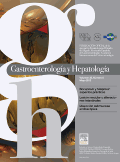
Gastroenterologia y Hepatologia
Elevating the standard of care through cutting-edge research.Gastroenterologia y Hepatologia, published by Elsevier España SLU, is a distinguished journal dedicated to advancing the fields of gastroenterology and hepatology. With a publication history spanning from 1982 to 2024, this journal is recognized for its commitment to disseminating high-quality research and reviews that address critical developments in the diagnosis and treatment of gastrointestinal and liver diseases. Although it currently ranks in the Q3 quartile in both gastroenterology and hepatology based on the 2023 metrics, the journal continues to attract a global audience of researchers, healthcare professionals, and students eager to engage with the latest findings. The journal is accessible in both print and electronic formats (ISSN: 0210-5705), making its valuable insights reachable to a broad spectrum of subscribers. By fostering a platform for rigorous scholarly communication, Gastroenterologia y Hepatologia plays a vital role in shaping the future of research in these essential medical fields.

Clinical Gastroenterology and Hepatology
Exploring Breakthroughs in Liver and Gastrointestinal ResearchClinical Gastroenterology and Hepatology, published by Elsevier Science Inc, stands as a leading journal in the fields of gastroenterology and hepatology. With an ISSN of 1542-3565 and an E-ISSN of 1542-7714, this esteemed publication has earned its place in the top quartile (Q1) of both gastroenterology and hepatology categories as of 2023, ranking 6th out of 167 and 7th out of 82 respectively. The journal aims to disseminate innovative research, clinical studies, and case reports that advance the understanding and treatment of gastrointestinal and liver diseases. Targeted towards researchers, healthcare professionals, and students, it provides crucial insights into emerging therapies and medical advancements. Clinical Gastroenterology and Hepatology is not only a pivotal resource for contemporary gastroenterological research but also fosters collaboration and knowledge-sharing within the medical community. With a converging publication history from 2003 to the present, the journal continues to build on its solid foundation of scientific excellence and relevance.

JHEP Reports
Advancing healthcare knowledge through open access.JHEP Reports, published by ELSEVIER, stands at the forefront of scholarly communication in the fields of Gastroenterology, Hepatology, Immunology and Allergy, and Internal Medicine. As an Open Access journal since 2019, it provides a platform for the dissemination of high-quality research findings, making vital information readily accessible to a global audience. With a commendable impact characterized by a Q1 category ranking across four medical disciplines in 2023, JHEP Reports demonstrates its significance and influence, reflected in its impressive Scopus ranks—#11 in Gastroenterology and #14 in Internal Medicine, amongst others. This esteemed journal not only plays a critical role in advancing knowledge but also fosters collaboration among researchers, practitioners, and students keen on exploring innovations and breakthroughs in health sciences. At RADARWEG 29, 1043 NX AMSTERDAM, NETHERLANDS, JHEP Reports is committed to bridging the gap between research and application, ushering in a new era of informed and effective healthcare solutions.
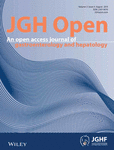
JGH Open
Fostering Collaboration for Global Health AdvancesJGH Open is a prominent open-access journal dedicated to advancing knowledge in the fields of Gastroenterology and Hepatology, published by WILEY. Since its inception in 2017, the journal has served as a crucial platform for researchers, professionals, and students to disseminate innovative research findings and clinical insights. With an impact factor and Scopus rankings reflecting its steady growth—ranking in the 3rd quartile for both Gastroenterology (Q3) and Hepatology (Q3)—JGH Open is positioned within the competitive landscape of medicine. Its commitment to open access enhances the visibility and accessibility of high-quality research, ensuring that significant advancements in understanding diseases of the gastrointestinal tract and liver reach a broad audience. With a focus on collaboration and dissemination of knowledge, JGH Open aims to contribute to the global discourse and improve outcomes in gastrointestinal health.
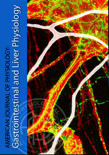
AMERICAN JOURNAL OF PHYSIOLOGY-GASTROINTESTINAL AND LIVER PHYSIOLOGY
Connecting Researchers and Clinicians in Digestive HealthAmerican Journal of Physiology-Gastrointestinal and Liver Physiology, published by the American Physiological Society, stands as a leading journal in the domains of gastroenterology, hepatology, and overall physiology. With an impressive impact factor and consistent ranking in the Q1 quartile across multiple categories, this journal provides a vital platform for disseminating advanced research and innovative findings related to gastrointestinal and liver physiology. Since its inception in 1980, the journal has fostered a community of researchers and clinicians dedicated to understanding and improving digestive and liver health. While maintaining a traditional subscription model, it ensures high-quality peer-reviewed content that is crucial for informed professional practice and academic inquiry. The journal’s Scopus ranks highlight its significant impact in the fields of gastroenterology and hepatology, making it an indispensable resource for academics and practitioners alike, eagerly exploring both foundational and cutting-edge topics in physiology.
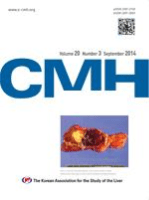
Clinical and Molecular Hepatology
Exploring the frontiers of liver disease research.Clinical and Molecular Hepatology, published by the Korean Association for the Study of Liver, stands at the forefront of hepatology, offering a significant platform for research and innovation in liver diseases. Established in 1995 as an open access journal, it aims to disseminate high-quality research that spans the fields of hepatology, molecular biology, and medicine. With an impressive impact factor ranking it in the Q1 category for 2023 in both Hepatology and Molecular Biology, the journal facilitates a rich exchange of knowledge among professionals, researchers, and students globally. With its dedicated coverage from 2012 to 2024 and exceptional Scopus rankings placing it within the top 10% of journals in its field, Clinical and Molecular Hepatology is an indispensable resource for advancing the understanding and treatment of liver conditions. Located in Seoul, South Korea, the journal emphasizes rigorous peer review and is committed to enhancing clinical practice and molecular research, making it an ideal venue for groundbreaking studies in liver health.
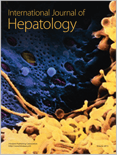
International Journal of Hepatology
Bridging research and clinical practice in hepatology.The International Journal of Hepatology, published by HINDAWI LTD, is a premier open-access journal dedicated to the field of hepatology. Since its inception, this journal has championed the dissemination of cutting-edge research and reviews pertaining to liver health, diseases, and therapies. With an ISSN of 2090-3448, the journal has been committed to open-access publishing since 2011, ensuring that vital knowledge is readily available to researchers, clinicians, and students worldwide. Based in Egypt, this journal stands out in its category, achieving a Q3 ranking in 2023 within the scope of Hepatology by Scopus, which ranks it #43 out of 82 in the field. The International Journal of Hepatology offers a platform for significant findings and discussions that influence clinical practices and foster new research directions, thus playing a crucial role in advancing the understanding of liver diseases and their management.

Hepatology Forum
Illuminating the path to better liver health.Hepatology Forum is an esteemed journal dedicated to disseminating cutting-edge research and insights in the fields of gastroenterology and hepatology. Published by KARE PUBL in Turkey, this journal serves as a vital platform for researchers, clinicians, and healthcare professionals aiming to advance their knowledge and practices related to liver diseases and gastrointestinal disorders. With an ISSN of 1307-5888 and an E-ISSN of 2757-7392, it features peer-reviewed articles that encompass a wide range of topics from basic research to clinical applications. Although categorized in the Q3 quartile for both gastroenterology and hepatology in 2023, Hepatology Forum continues to show significant potential for growth and impact, as evidenced by its Scopus rankings. Through its commitment to open scientific exchange, the journal not only facilitates the sharing of innovative methodologies and findings but also fosters networking among professionals in the field. As it converges through the years from 2020 to 2024, Hepatology Forum remains an important resource for the advancement of liver health and diseases, appealing to both established experts and emerging scholars alike.